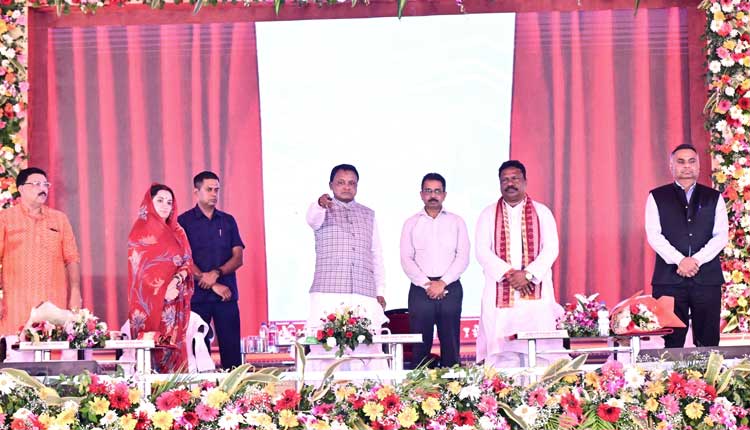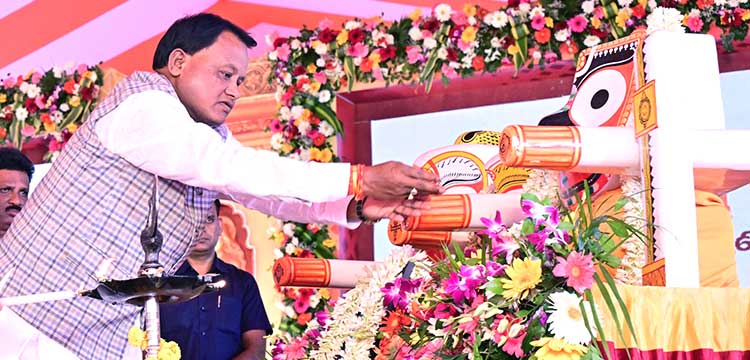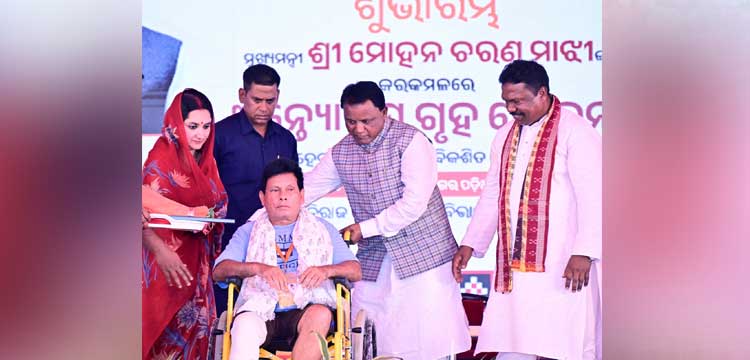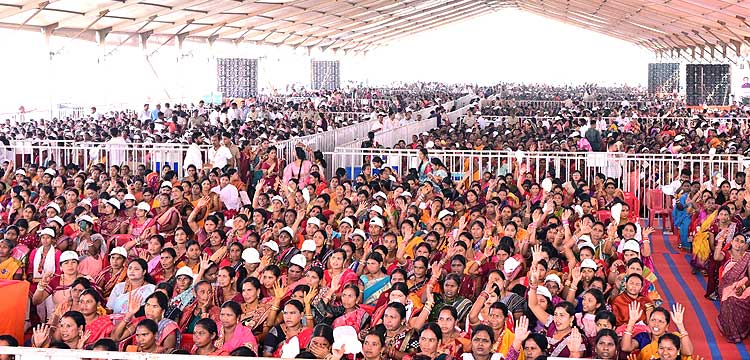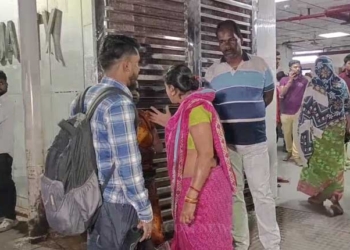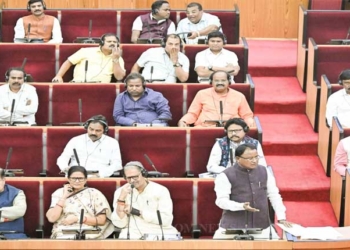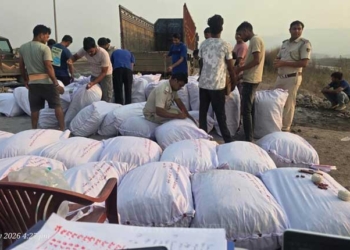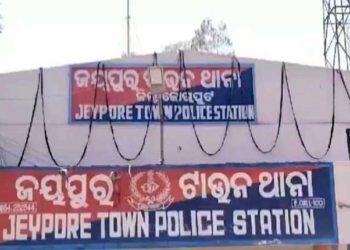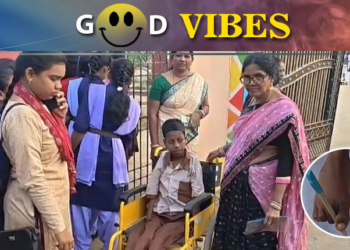Bhubaneswar: Chief Minister Mohan Charan Majhi on Sunday launched the Antyodaya Gruha Yojana at Bhawanipatna in Kalahandi district, addressing the long-standing issue of pucca houses for the poor.
“Since the 1970s, securing a house has been a major challenge for the poor and common people. Even today, many are still without homes. This issue will be resolved and everyone will be provided with a pucca house,” said CM Majhi. The scheme aims to provide homes to the most vulnerable sections of society.
In his address, the Chief Minister also extended his greetings on the occasion of Hindu New Year, emphasizing that the scheme would bring hope to every rural family, enabling them to live with dignity.
“In 2018, the visionary Prime Minister Narendra Modi had announced that this problem would be addressed by ensuring pucca houses for all. The Pradhan Mantri Awas Yojana is being implemented to achieve this goal and with the Antyodaya Gruha Yojana, we are taking significant steps in Odisha to make housing a reality for everyone,” CM Majhi added.
As part of the launch, work orders were distributed for 60,000 houses under the Antyodaya Gruha Yojana.
The Chief Minister announced that the state’s target is to construct more than 5 lakh houses over the next three years.
“This year, Rs 2,600 crore has been allocated for the scheme, with an additional Rs 7,550 crore earmarked for the next three years,” he stated. He noted that very few houses had been built under the Biju Pucca Ghar Yojana over the past decade.
Each beneficiary under the scheme will receive Rs 1,20,000, and essential facilities will be provided in coordination with other government initiatives.
These include toilets from the Swachh Bharat Mission, cooking gas under the Pradhan Mantri Ujjwala Yojana, clean drinking water through the Jal Jeevan Mission, and electricity under the Pradhan Mantri Sahaj Bijli Har Ghar Yojana – Saubhagya.
In addition, beneficiaries will be provided with paid work for 90 to 95 days as unskilled laborers under the Mahatma Gandhi National Rural Employment Guarantee Act (MGNREGA), 2005.
The Chief Minister highlighted that the scheme prioritizes the most vulnerable, including people with disabilities, widows, families affected by serious diseases like cancer, families of martyrs, the homeless, and those affected by natural disasters such as floods. Families suffering from chronic illnesses such as cancer, leprosy, kidney disease, liver cirrhosis, and thalassemia will also receive immediate housing.
To streamline the process, the definitions of ‘family’ and ‘pucca ghar’ have been simplified. Asbestos, tin, and tile-roofed houses are now categorized as temporary structures, while RCC roofs with cement walls are considered pucca houses. The definition of a family has also been adjusted to include the husband, wife, dependent parents, and children.
Further, CM Majhi updated the public on the progress of the Pradhan Mantri Awas Yojana (Gramin), mentioning that over 23 lakh houses have been constructed in Odisha, with 4 lakh houses under construction. Since January 24, over 26 lakh people have been surveyed and included in the housing scheme.
In an effort to expedite house construction, beneficiaries who complete their houses within four months of receiving the first installment will be rewarded with Rs 20,000, while those who complete their homes within six months will receive Rs 10,000.
The Chief Minister also pointed out the ongoing development in Kalahandi, stating that the region is rich in culture, history, and agriculture. Responding to the demands of the locals, the concrete lining work of the left-side canal of the Indravati Multipurpose Water Project will soon be completed. To prevent future incidents like the tragic case of Daan Majhi, the government has introduced a 109-ambulance service.
“Our government is dedicated to serving the people. We will continue to go to the people and Chief Minister’s grievance redressal meetings will be held in Bhawanipatna and Sambalpur,” he added.
During the event, CM Majhi launched projects worth Rs 617.51 crore in Kalahandi, including the inauguration of the Julko In-stream Storage Structure at a cost of Rs 68.35 crore in Kesinga block. This will provide drinking water to 9,000 people and support irrigation for Rabi crops.
Additionally, a grid substation and K.V. line have been developed at Bhundubahal, costing more than Rs 52 crore.
Other infrastructure projects, including those for drinking water, education, health, and roads, were also launched, with the Chief Minister emphasizing that these initiatives would accelerate Kalahandi’s development.
Rural Development, Panchayati Raj & Drinking Water Minister Rabi Narayan Naik reiterated the government’s commitment to addressing long-standing rural issues, assuring that there would be no gaps in the implementation of policies like the Antyodaya Gruha Yojana or the Pradhan Mantri Awas Yojana. He also warned that any neglect of the poor by government officials would result in strict action.
Kalahandi MP Malvika Devi, Dharmagarh MLA Sudhir Ranjan Pattjoshi, and Kalahandi District Council President Puspendra Singh Deo were present at the event. Ministers, MPs, and MLAs from across the state joined virtually.
Panchayati Raj and Drinking Water Department Commissioner and Administrative Secretary Girish S. N. welcomed the attendees and Kalahandi District Collector Sachin Pawar proposed the vote of thanks.




